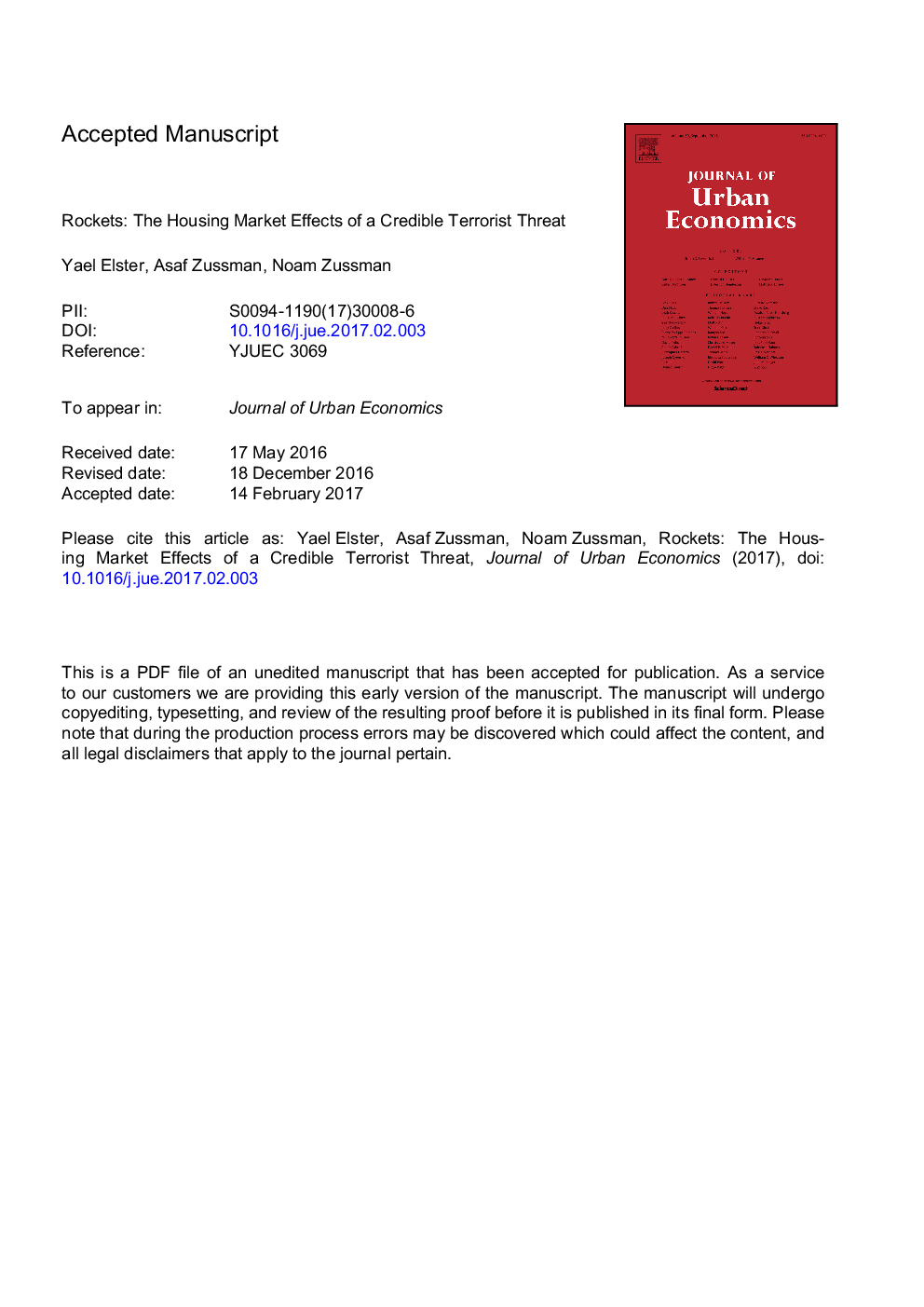| Article ID | Journal | Published Year | Pages | File Type |
|---|---|---|---|---|
| 5101974 | Journal of Urban Economics | 2017 | 42 Pages |
Abstract
This paper explores the economic costs of conflict using a unique experiment. We analyze the effects of Hezbollah's massive surprise rocket attack against northern Israel during the 2006 Second Lebanon War and the continued threat posed by the organization's expanding rocket arsenal on the housing market, the labor market and patterns of migration flows and sorting. Relying on hedonic and repeat sales approaches and using a difference-in-differences identification strategy for 2000-2012, we show that the attack led to a 6-7% decline in house prices and rents in the most severely hit localities relative to other localities in northern Israel. These effects persisted until 2012, suggesting that the public continued to view the rocket threat as credible. In contrast, we find practically no effect on labor market conditions, migration flows and sorting.
Related Topics
Social Sciences and Humanities
Economics, Econometrics and Finance
Economics and Econometrics
Authors
Yael Elster, Asaf Zussman, Noam Zussman,
